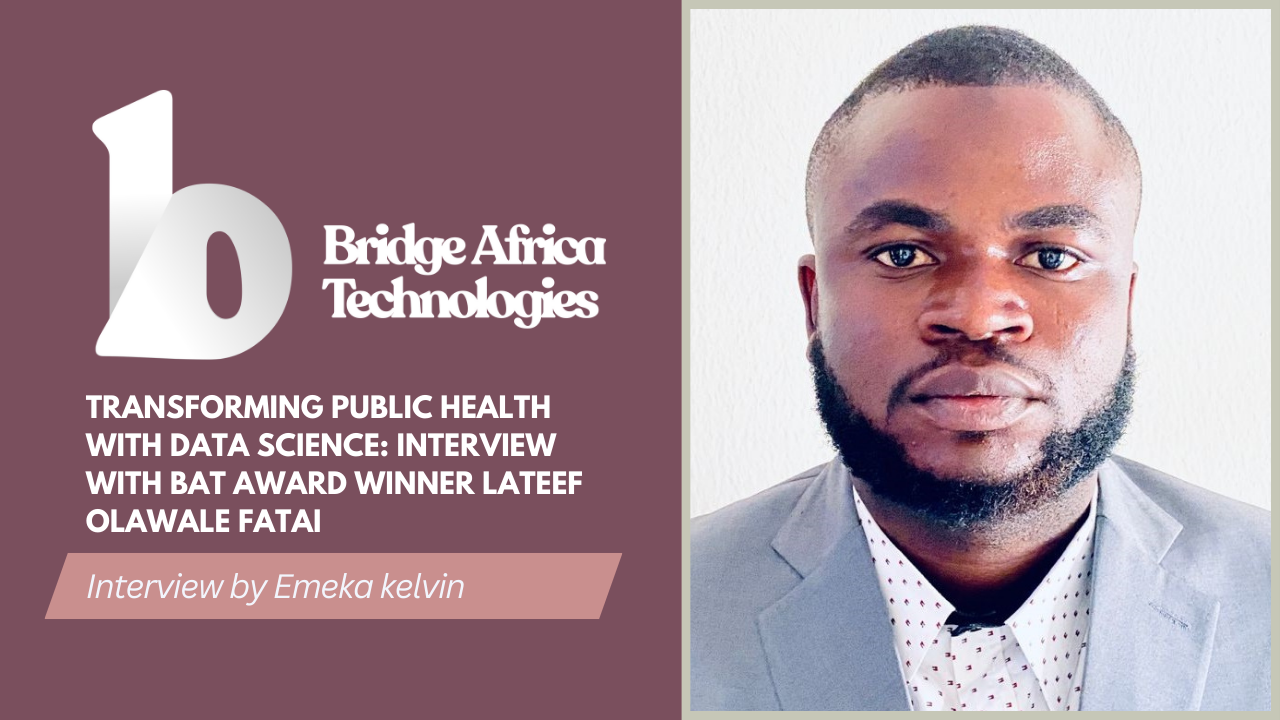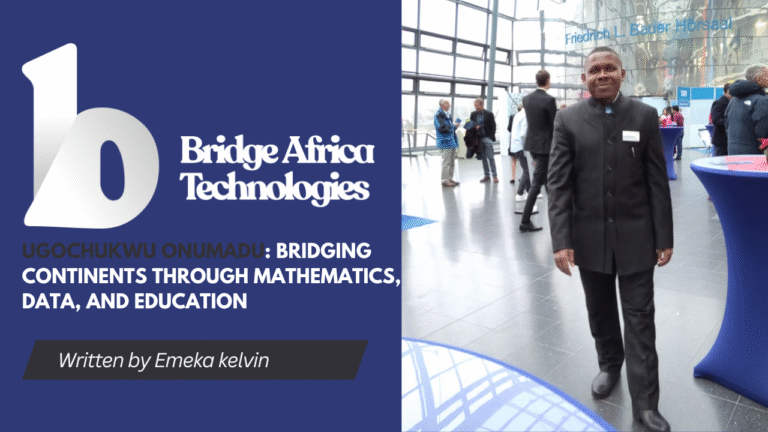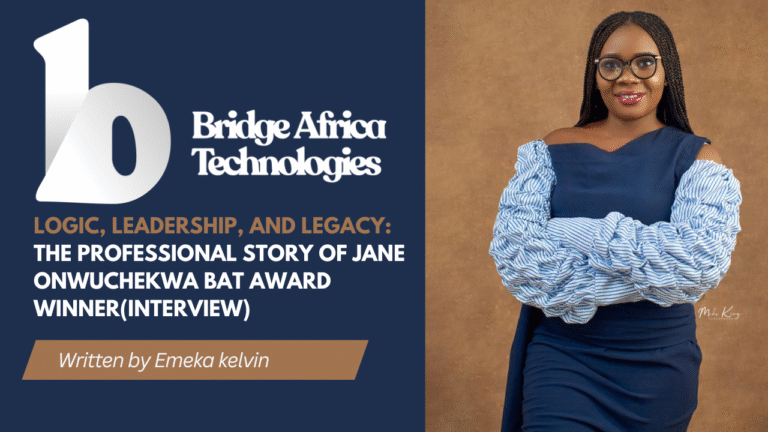Meet Lateef Olawale Fatai, an accomplished professional in statistics and data science, recognized for using data analytics to tackle homelessness, substance abuse, and mental health challenges. With over five years of progressive experience, Lateef has consistently demonstrated his expertise in leveraging data to address complex societal issues. Holding a Bachelor of Science in Statistics from the University of Abuja and a Master of Science in Data Science from the University of Salford, Lateef has developed a comprehensive skill set in cloud computing, big data, statistical analysis, artificial intelligence, and machine learning. His proficiency with tools like Python, R-Studio, SAS, and Big Query has made him a transformative force in data-driven public health initiatives.
“Data is not just numbers; it tells a story that can drive impactful decisions and connect individuals to life-changing resources.” — Lateef Olawale Fatai
In his current role as a Data Governance and Quality Analyst at Swindon Borough Council, Lateef has been instrumental in analyzing and connecting data across public health, homelessness, and social services. By cataloging data, defining quality standards, and collaborating with stakeholders, he has helped create a data infrastructure that identifies individuals in need and connects them to government and community services for rehabilitation and recovery. His innovative contributions have streamlined data processes, improved accessibility, and, most importantly, facilitated life-saving interventions

Read Also: BAT Most Influential Women In Tech In Nigeria 2024 -Awards
Data Analytics and Social Impact
Lateef’s career achievements are distinguished by focusing on applying data science to address pressing public health challenges. His work has earned him notable accolades, including the BAT Award of Excellence in 2023, recognizing his exceptional contributions to using data for transformative change. Lateef was also honored with the Global Gold Excellence Award from the University of Salford for his outstanding academic and professional accomplishments as an international student.
Lateef’s innovative use of data has reshaped how organizations approach homelessness, substance abuse, and mental health challenges. His ability to analyze high-dimensional datasets has enabled him to uncover patterns and trends, driving data-informed strategies that link affected individuals to essential services, such as housing, addiction recovery programs, and mental health counseling.
Research Contributions and Practical Applications
Lateef’s work in public health analysis extends beyond academic research to real-world applications. For example:
- Homelessness Interventions: Lateef developed predictive models that identified individuals at risk of homelessness by analyzing datasets from social services, shelters, and health organizations. His insights allowed community outreach programs to proactively intervene and connect those at risk with housing and support services.
- Substance Abuse Recovery: By using machine learning models, Lateef identified trends in substance abuse relapse rates and connected affected individuals to appropriate government-funded rehabilitation programs. This data-driven approach improved recovery rates by tailoring interventions to individual needs.
- Mental Health Support: Lateef analyzed mental health data from various agencies to identify gaps in service delivery. His work facilitated the establishment of partnerships between local governments and mental health organizations, ensuring that underserved populations received timely and effective care.
Key Projects and Achievements
- Data-Driven Outreach: Lateef spearheaded a community health project that used data analytics to connect homeless individuals and those struggling with addiction to government-funded services. By integrating health, social service, and law enforcement data, the project identified high-risk individuals and neighborhoods, enabling targeted outreach campaigns.
- AI-Driven Solutions for Mental Health: Lateef developed AI models that identified early warning signs of mental health crises. These models enabled rapid response teams to intervene, reducing the risk of severe outcomes and improving access to counseling and psychiatric care.
- Collaboration with Government Services: Working closely with local health departments and social services, Lateef facilitated the creation of integrated systems that streamlined the process of connecting vulnerable populations to housing, medical care, and substance abuse treatment programs.
- Public Health Analysis: Lateef conducted extensive analyses of health disparities among children in developing countries, identifying critical trends that informed global health policies and intervention strategies.
Recognition and Future Aspirations
Lateef’s accomplishments have been widely recognized, earning him the BAT Award of Excellence for his innovative work in data analytics and public health. His contributions to improving health outcomes through data have set a standard for how analytics can address societal challenges. This recognition has amplified his platform, enabling him to advocate for more data-driven approaches in tackling homelessness, substance abuse, and mental health crises.
“Receiving the BAT Award of Excellence was both a personal and professional milestone,” says Lateef. “It validated my commitment to using data for good and inspired me to continue driving meaningful change in public health and social systems.”
Looking forward, Lateef aspires to expand his impact by developing scalable models that integrate artificial intelligence and advanced analytics to predict and prevent crises in vulnerable populations. His ongoing research focuses on refining methods to better connect individuals to life-saving government services while improving the efficiency of public health systems.
Conclusion
Lateef Olawale Fatai’s journey exemplifies how data science can be a powerful tool for social change. From his groundbreaking work in homelessness and mental health interventions to his recognition as a BAT Award of Excellence recipient, Lateef has shown that data-driven strategies can transform lives and communities. His ability to connect individuals to government services using advanced analytics underscores his commitment to creating a better world through data.
As Lateef continues to innovate and inspire, his work reminds us of the untapped potential in harnessing data for social good. His story serves as a call to action for organizations and governments to embrace analytics as a catalyst for change, ensuring that no one is left behind in the pursuit of health and well-being.




